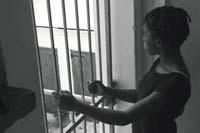Manila’s anti-trafficking hotline

With almost a thousand cases of human trafficking involving Filipinos recorded as of February 2011, the Philippine government has launched a 24-hour anti-human trafficking hotline that will respond to emergency calls from victims in Metro Manila and the provinces.
In a release, the Department of Foreign Affairs (DFA) said the Inter-Agency Council against Trafficking-Advocacy and Communications Committee (IACAT-ADVOCOM) launched the 1343 Actionline “Laban Kontra Human Trafficking” campaign, which became fully operational on March 15.
The 1343 hotline may be accessed from any point in Metro Manila, and can be accessed from the provinces by dialing Manila’s area code (02), and the hotline number.
It is set to become toll free all over the nation and even globally in the near future, the DFA said.
“We need this hotline because a lot of trafficking victims and their families need immediate response or aid. We are equipped to respond to their needs and if necessary, refer their cases to specific government agencies or our non-government organization partners,” Commission on Filipinos Overseas (CFO) Secretary and IACAT-ADVOCOM chairperson Imelda Nicolas said.
She added the 1343 hotline will likewise serve as a database for the documentation of trafficking cases involving Filipino victims.
The campaign is being carried out with various stakeholders including non-government organizations, women’s groups, government agencies and the Philippine National Police (PNP).
According to the DFA, a total of 20 convictions involving 20 traffickers were listed since the administration changed in June 2010.
In 2010, the US State Department said that it has kept the Philippines in its Tier 2 human trafficking watch list. This indicates that the country “does not fully comply with, but is making significant efforts to meet” the agency’s standards.
Aaccording to Lawyers Weekly, the first major report by the Royal Canadian Mounted Police on human trafficking in Canada in 2004 estimated that about 600 foreign nationals are brought to Canada for sex trafficking every year. Often young women — primarily from the Philippines, Moldova, China and Romania — are smuggled into Canada or lured to Canada by fraudulent offers of employment. Upon arrival, their passports and visas are confiscated and they are forced to work in strip clubs, massage parlors and “micro-brothels,” which can be set up in hotel rooms, apartment units and even luxury condominiums.









